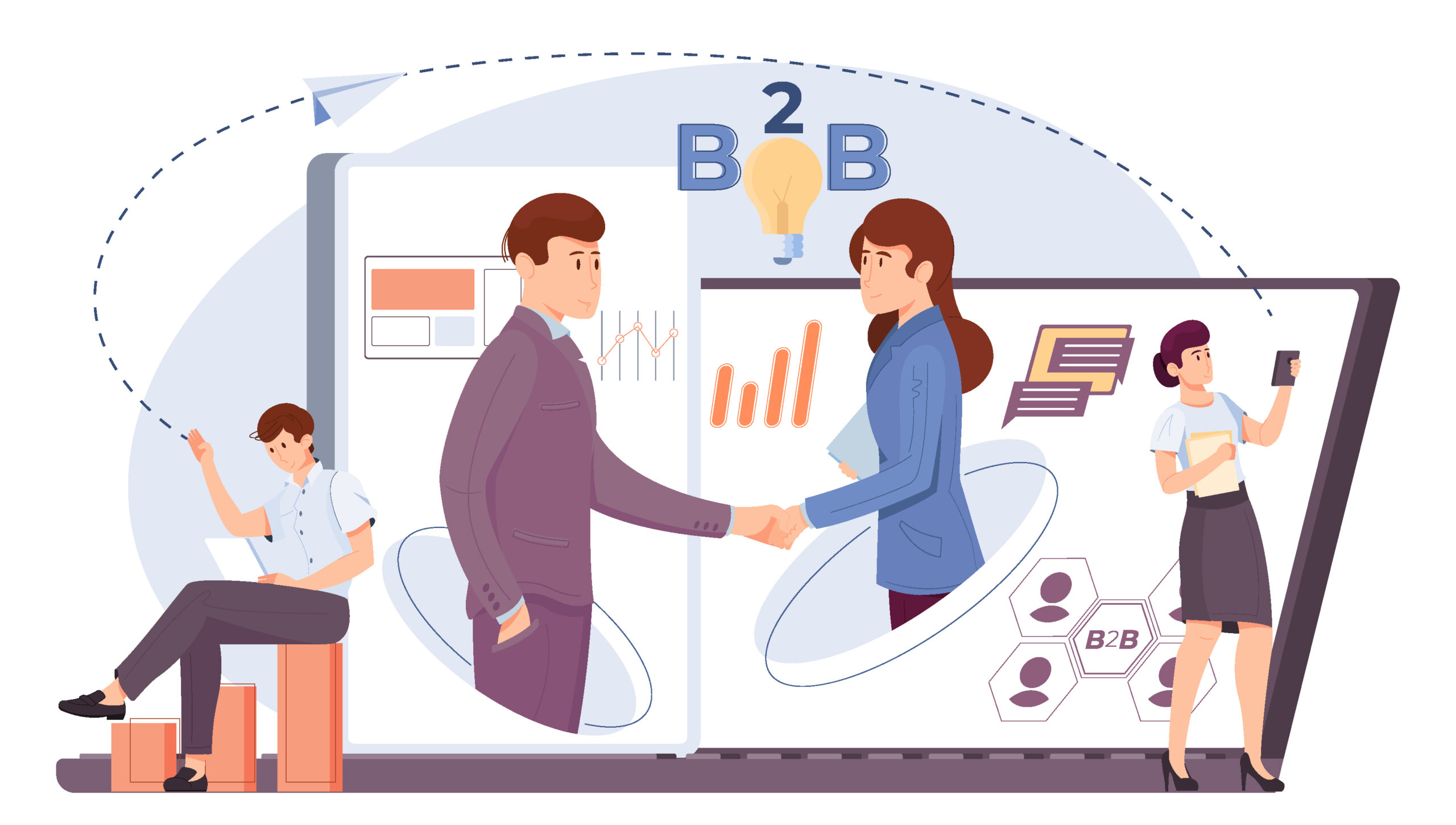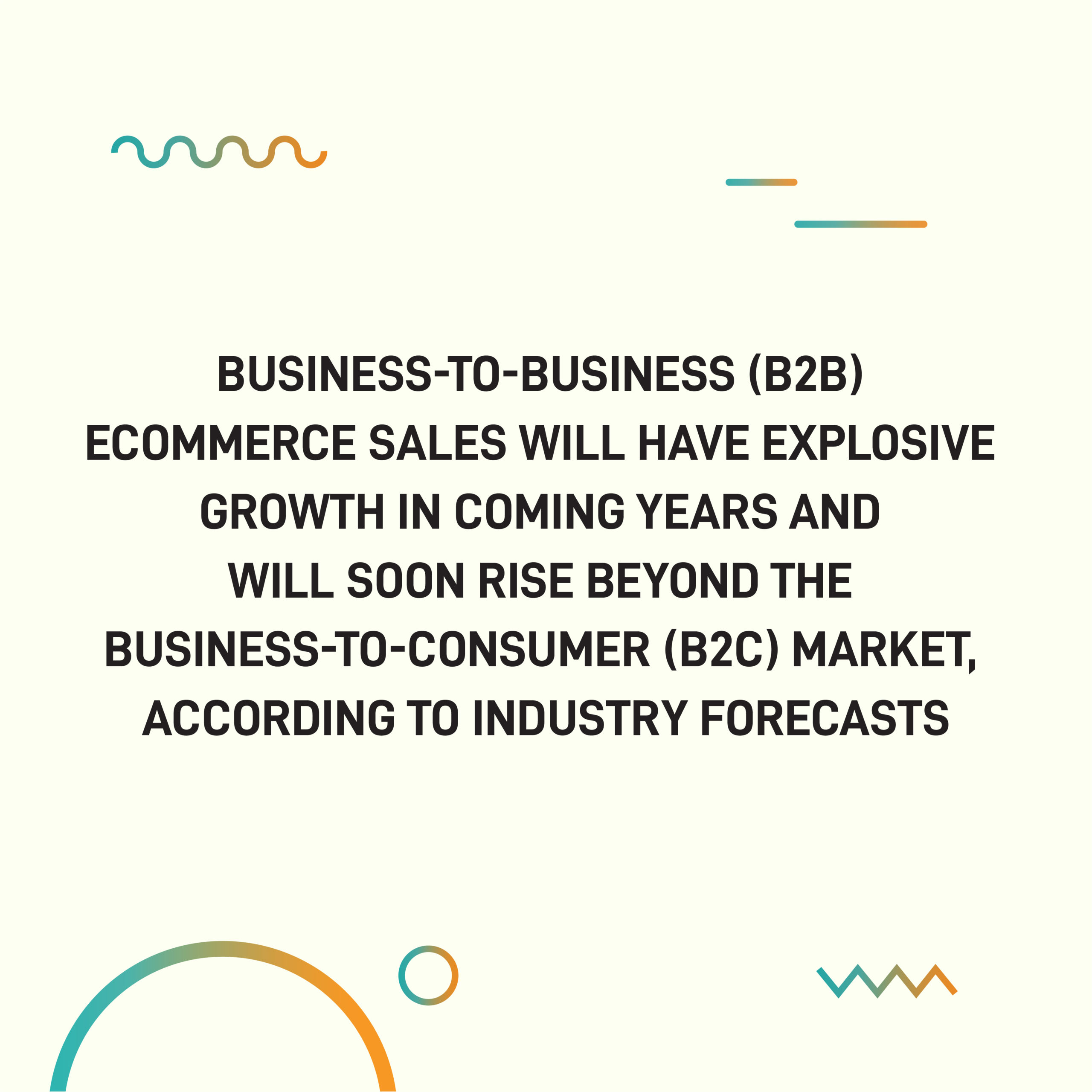
7 must-have features for B2B eCommerce Platforms
The B2B eCommerce market seems to be growing exponentially. These figures from Forrester seem to say just that. A recent study has quoted that U.S. business-to-business (B2B) eCommerce transactions will touch $1.8 trillion by 2023. It accounts for over 17% of all B2B sales in the country and has prompted many B2B brands to increasingly looking at digital to boost sales.
So, what is driving the growth?
First and foremost, the demographics of the B2B customer. Today more than half of the B2B buyers are millennials. They have grown up alongside technology and are very comfortable making personal purchases on the internet. They expect the same comfort, experience, and options while making purchases at the workplace.
Secondly, like in consumer brands, the buying process in B2B starts with an online search. Studies show that a B2B buyer engages in extensive search, identifies 12 options, compares them before purchasing a specific brand. So there is no way for brands but to invest in the digital space and get more visible.
Thirdly, the availability of multiple channels. Today, B2B buyers have access to different platforms selling the products they require. Company websites, marketplaces such as Amazon, eBay, etc are a few of them. It just shows that B2B sellers need to be present on multiple channels and adopt an omnichannel sales approach to remain relevant and grow.

How is a B2B eCommerce Platform different from a B2C?
B2B Selling is a more complex process than B2C. For example, the purchase decision does not rest with one individual. In most cases, it is a collective process where there is more than one person involved in the decision-making process. Also, in B2B selling, the purchase process is not an impulsive one. The buyer needs to get multiple quotes, compare the product features and pricing and then choose the best one that fits the requirement. Very often, some negotiations happen before a purchase is made. Also, products are often bought in bulk, and repeat purchases are common.
A B2B eCommerce Platform should offer all these features to enable a B2B business to sell effectively in the online space.
Seven must-have features for B2B eCommerce Platforms
Request for Quote
The Request for Quote feature enables an authorized buyer from a company to start a price negotiation process by requesting a quote from their shopping cart. The buyer can add all the products he is interested in in the shopping cart and instead of proceeding to checkout ask for a quote. This feature makes the buying process easy. With this feature, you can avoid getting on a call with the company’s sales representative to request a quote for the selected items. Now the company is free to respond with a customized quote depending on the size of the order, how long the customer has been with them etc making the buying process easier and more efficient.
Access Restriction Options
This feature allows you to display different information to different customers. In a B2B business, you are competing with other players in the market for orders. In such instances, you do not want your competitor to find the price you are quoting to the customer. Or there are instances where you extend a discount or offer bulk pricing based on order quantity. The information is confidential, and you would not want to expose this special pricing to your B2C customers. Access Restriction comes in handy here. There are options to build different pathways for your B2B and B2C customer, or you may build a functionality that requires customers to register before they can access the various product and pricing details.
Customer Specific Catalog and Pricing
A ‘One Price for all’ strategy does not work in B2B business. B2B companies work out special pricing based on customer type – How long have they been associated with you, what they are buying, how frequently they are buying etc. Very often, B2B businesses have customer-specific product catalogs. B2B platforms should be able to execute this online where the B2B companies can set different base prices for various in their catalog and assign these to specific customer groups.
Volume purchase and bulk discounts
In the B2B segment, sales often happen in bulk. One feature that is a must in B2B platforms is the ability to list certain products in bulk and not as individual items. Very often, B2B companies sell products in multiple quantities and often come in packs or boxes and carons.
It makes it easy for the buyer to add them to the cart and proceeding to checkout. Also, there should be an option to apply different discounts based on the quantity ordered.
Quick order option
Once B2B customers identify a seller and start buying from them, they have clarity on what they want to purchase, the specifications, how much to buy, and the price offered during the last purchase. The Quick Order Option provides the customer with a form where they enter the item or SKU code, quantities required, the previous price offered, etc without having to spend time browsing the site again and searching for the product every time. It is a time saver and makes the whole buying process super-efficient.
Content delivery
In B2B business, content plays a critical role in the purchase journey of a customer. Customers bank on content to arrive at decisions – right from product features, technical specs, comparisons, etc. The eCommerce platform should be flexible enough to quickly make content corrections, update new content, roll out special offers, etc with little effort. It should be able to support images, videos, technical documents, etc. It should also provide businesses with low-code and no-code page development options so that non-technical
users can add content to the site easily. They should be able to drag and drop text, images and change page layouts as required.
Self-service account management tools
Transparency is key to success in the B2B business. Customers want visibility regarding products, their availability, the order status, delivery details, etc. Self-service account management tools are a must to address this need of a customer. An option to create an account, log in and have access to a dashboard that displays all details regarding their orders, including historical transactions, will ensure transparency and the visibility customers demand.
So, if you are looking to develop a B2B eCommerce site, connect with Arizon Digital.
About Arizon Digital
Arizon Digital is a technology leader in retail and eCommerce solutions. We offer innovative services and solutions for B2B and B2C eCommerce businesses. We enable them to run their store better and achieve success and growth. Our solutions power the sites with the latest designs and functionalities that will enhance the customer experience. Arizon Digital operates out of Sugar Land, Texas. To know more about Arizon Digital, visit: https://arizon.digital/




